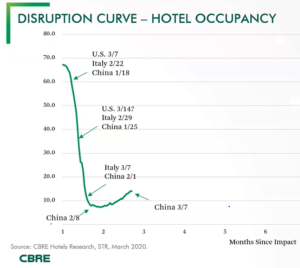Table of Contents:
- Introduction
- The Growth of Alternative best Accommodation
- The Impact on Hotels
- The Future of best Accommodation
- Conclusion
- FAQs
Introduction:
As the sharing economy continues to grow, the hospitality industry is experiencing a shift in consumer behavior and preferences. Alternative accommodation, such as vacation rentals, home-sharing, and serviced apartments, are becoming increasingly popular among travelers. The rise of alternative accommodation is a significant threat to traditional hotel business models. However, it also presents an opportunity for hotels to adapt and compete in an ever-changing market.

The hospitality industry has been significantly impacted by the sharing economy, with alternative best accommodation options such as Airbnb, Vrbo, and HomeAway becoming increasingly popular. While hotels have long been the go-to option for travelers, alternative best accommodation is now presenting itself as a competitive alternative.
This article will explore the rise of alternative best accommodation and its impact on the hospitality industry, specifically hotels. We will delve into consumer behavior, online booking trends, and the potential for disruptive innovation to disrupt the traditional hotel industry.
The Growth of Alternative Accommodation:
In recent years, the travel industry has witnessed a significant shift in best accommodation preferences, with a growing demand for alternative best accommodations such as vacation rentals, serviced apartments, and hostels. This trend has been driven by changing consumer behavior, as travelers look for more authentic experiences, value for money, and flexible options that meet their specific needs.
The Sharing Economy and Tourism:
The sharing economy has had a significant impact on the tourism industry. Alternative best accommodation options have given consumers more options when it comes to travel and have helped to democratize the industry. Airbnb, one of the largest alternative best accommodation providers, boasts more than 7 million listings in over 220 countries. The rise of alternative best accommodation has helped to increase the number of travelers and encourage more frequent travel.

The Evolution of Alternative best Accommodation:
Alternative best accommodation has evolved over the years, from vacation rentals to home-sharing, to serviced apartments. Today, there are a plethora of options for travelers seeking alternative best accommodation. These options vary from budget-friendly to luxurious and cater to a wide range of preferences and needs.
In recent years, alternative best accommodation has become a popular choice for travelers looking for unique and affordable places to stay. From homestays and couch surfing to vacation rentals and glamping, the options are endless.
The Rise of Homestays:
Homestays, also known as home sharing, is a type of alternative best accommodation that involves staying in someone’s home. This concept was popularized by websites like Airbnb and Couchsurfing, which connect travelers with local hosts who are willing to rent out their spare rooms or even their entire homes.
Vacation Rentals Take Center Stage:
As the popularity of homestays grew, so did the demand for more traditional vacation rentals. These are properties that are owned by individuals or companies and rented out to travelers for short-term stays. Companies like VRBO and HomeAway were early pioneers in the vacation rental space, but in recent years, Airbnb has emerged as the dominant player.
Glamping: Camping with a Twist
Glamping, short for “glamorous camping,” is a form of alternative best accommodation that allows travelers to experience the great outdoors without sacrificing comfort. Glamping sites typically offer a range of amenities, including comfortable beds, heating and air conditioning, and even private bathrooms.
Tiny Homes and Container Homes:
Tiny homes and container homes are another type of alternative best accommodation that has gained popularity in recent years. These compact and eco-friendly homes offer travelers a unique and affordable way to experience new destinations. They can be rented through sites like Getaway and Try It Tiny.
Co-Living Spaces:
Co-living spaces are a relatively new form of alternative best accommodation that allows travelers to live with like-minded individuals in a communal setting. These spaces often offer shared amenities like kitchens, living areas, and workspaces, and are popular among digital nomads and other remote workers.
The Impact on Hotels:
The hospitality industry has always been one of the most dynamic and rapidly changing industries in the world. With the advent of new technology, shifting consumer preferences, and the ongoing COVID-19 pandemic, the hotel industry has seen significant changes in recent years.

Competitive Advantage:
The rise of alternative best accommodation has presented a significant threat to hotels. However, it has also created an opportunity for hotels to re-evaluate their business models and remain competitive. Hotels can use alternative best accommodation as a benchmark for pricing, amenities, and customer service. This benchmarking can help hotels to identify areas for improvement and better understand their competitive advantage.
Consumer Behavior and Preferences:
Consumer behavior and preferences have significantly impacted the growth of alternative best accommodation. Today’s consumers prioritize convenience, affordability, and a unique experience. Alternative best accommodation options, such as Airbnb, offer all three of these elements, making them a popular choice for many travelers. Hotels must adapt to changing consumer preferences to remain relevant and competitive.
Online Booking Trends:
Online booking has been a game-changer for the travel industry. Consumers can now book alternative best accommodation options easily, and often at a lower price than traditional hotels. Online booking has also made it easier for travelers to access information about alternative best accommodation options, such as reviews and ratings. Hotels must invest in their online booking systems and digital marketing strategies to remain competitive in an ever-changing market.
The Future of best Accommodation:
The future of alternative best accommodation looks bright, with the market expected to continue growing in the coming years. According to a report by Allied Market Research, the global vacation rental market is expected to reach $62.97 billion by 2027, growing at a CAGR of 3.4% from 2020 to 2027.
One of the key trends in alternative best accommodation is the rise of “bleisure” travel, which combines business and leisure travel. Many business travelers are now opting for alternative best accommodations, which offer more space, privacy, and flexibility than traditional hotels.
Another trend is the focus on sustainability and eco-friendly best accommodation options. Many travelers are now looking for best accommodation options that are environmentally friendly and support local communities.
Disruptive Innovation:
Disruptive innovation has the potential to completely transform the hospitality industry. The rise of alternative best accommodation is just one example of how disruptive innovation is impacting the industry. The adoption of new technologies, such as artificial intelligence and virtual reality, could further disrupt the traditional hotel industry. Hotels must be open to innovation and invest in new technologies to remain competitive

While alternative best accommodation may be seen as a threat to hotels, there is also an opportunity for collaboration. Many hotels have started to offer alternative best accommodation options, such as serviced apartments or vacation rentals. This allows hotels to diversify their offerings and appeal to a wider range of consumers. Additionally, hotels can partner with alternative best accommodation providers to offer package deals or referral programs.
Conclusion:
The rise of alternative best accommodation has undoubtedly had a significant impact on the hospitality industry. While it presents a threat to traditional hotel business models, it also offers an opportunity for hotels to adapt and remain competitive. The key to success for hotels is to understand changing consumer preferences, invest in their online booking systems and digital marketing strategies, and be open to innovation and collaboration.
The hotel industry is constantly evolving, and hotels need to stay ahead of the curve in order to remain competitive. By embracing new technology, adapting to changing consumer preferences, and preparing for the impact of COVID-19, hotels can navigate the changing landscape and emerge stronger than ever.
FAQS:
- What is alternative best accommodation?
- Alternative best accommodation refers to accommodation options other than traditional hotels, such as vacation rentals, homestays, hostels, and serviced apartments.
- How has the sharing economy impacted the tourism industry?
- The sharing economy has disrupted the tourism industry by providing new accommodation options and platforms for travellers to book them. It has also enabled tourists to experience local cultures and communities in a more authentic way.
- How can hotels remain competitive in the face of alternative accommodation?
- Hotels can remain competitive by investing in their online booking systems, digital marketing strategies, and by offering unique experiences and amenities that alternative best accommodations cannot provide.
- What is disruptive innovation, and how could it impact the hospitality industry?
- Disruptive innovation refers to the process of introducing a new product or service that disrupts the existing market and creates a new market. In the hospitality industry, disruptive innovation could come in the form of new technology, alternative accommodation options, or new business models.
- Is there an opportunity for collaboration between hotels and alternative best accommodation providers?
- Yes, there is an opportunity for collaboration between hotels and alternative accommodation providers. Hotels can offer alternative accommodation options to diversify their offerings, while alternative accommodation providers can partner with hotels to offer package deals or referral programs.
- How important is it for hotels to invest in their online booking systems and digital marketing strategies?
- It is crucial for hotels to invest in their online booking systems and digital marketing strategies, as the majority of consumers now book their travel online. Hotels need to ensure that their online presence is strong and that their booking systems are user-friendly, mobile-responsive, and secure. Additionally, digital marketing strategies such as social media advertising and email marketing can help hotels reach new audiences and build brand loyalty.

























